Not all sugars are created equal
Not all sugars are equal in terms of their impact on health. Natural sugars found in fruits and dairy come packaged with beneficial nutrients.
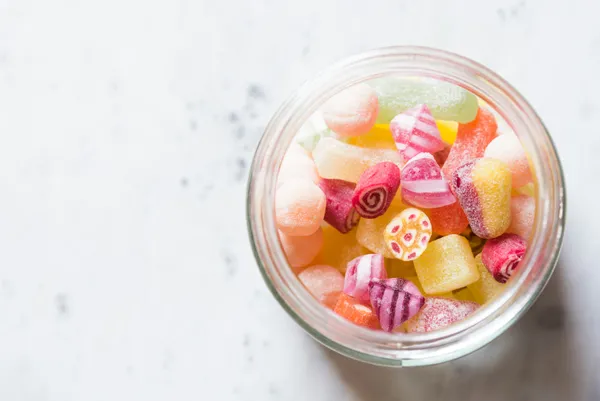

However, added sugars in processed foods and beverages provide little to no nutritional value and can contribute to health issues like obesity and diabetes.
You don't need to cut out all sugar
While reducing your sugar intake is wise for health reasons, eliminating it entirely is neither practical nor necessary for most people.


Sugar plays a role in energy production and can be enjoyed in moderation as part of a balanced diet. It's the excessive consumption of added sugars that poses the risk.
Artificial sweeteners are not a healthy alternative
Artificial sweeteners may offer a lower calorie option, but they come with their own long list of health concerns.


Some studies suggest they may disrupt gut bacteria, trigger cravings for sweet foods, and even contribute to weight gain in the long term.
Natural sugars aren't always healthy
Natural sugars in fruits are healthier alternatives to added sugars, but they still add up if overconsumed. Portion control is key, even with nature's sweet treats.
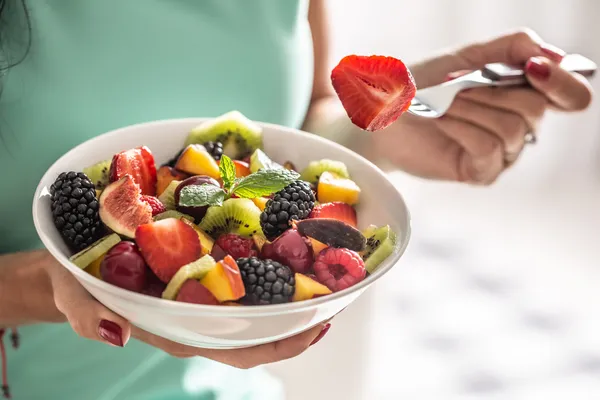

Enjoying these foods in moderation as part of a balanced diet ensures a healthy intake of essential nutrients without excessive sugar consumption.
Sugar doesn't cause hyperactivity
Despite popular belief, sugar has not been proven to cause hyperactivity in children. Multiple studies have debunked this myth, showing no significant link between sugar consumption and behavior.


Other factors, such as excitement from special occasions or parental expectations, may contribute to perceived hyperactivity after consuming sugary treats.
Sugar-free products aren't healthy
Beware: "sugar-free" doesn't always mean healthy! Numerous sugar-free options are laden with artificial sweeteners or excessive levels of other unhealthy additives.
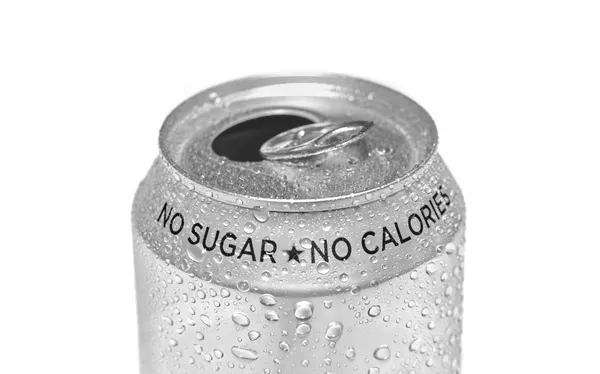

Checking ingredient labels is essential to avoid falling into the trap of assuming sugar-free equals nutritious. Always prioritize whole, natural foods over processed alternatives.
Sugar doesn't cause diabetes
While overconsumption of sugar can increase the risk of type 2 diabetes, it's crucial to recognize that it's not the sole culprit.


Genetics, lifestyle choices, and overall dietary habits also heavily influence the development of this condition. Maintaining a balanced lifestyle and diet remains key in preventing and managing type 2 diabetes effectively.
All carbohydrates are not sugar
Carbohydrates include various foods, such as sugars, starches, and fiber. It's essential to understand that not all carbohydrates are sugars, and each type affects the body differently.
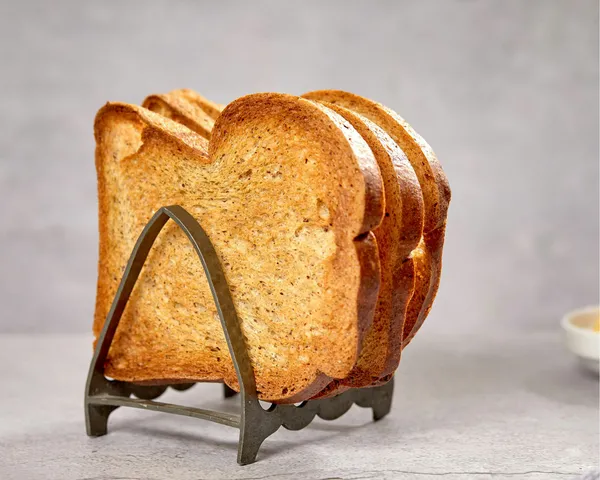

While sugars provide quick energy, starches offer sustained energy, and fiber aids digestion and promotes overall health. Balancing carbohydrate intake is key to a healthy diet.
Sugar isn't always bad
Sugar, in moderation, can be included in a balanced diet. The real concern lies in the excessive consumption of added sugars.
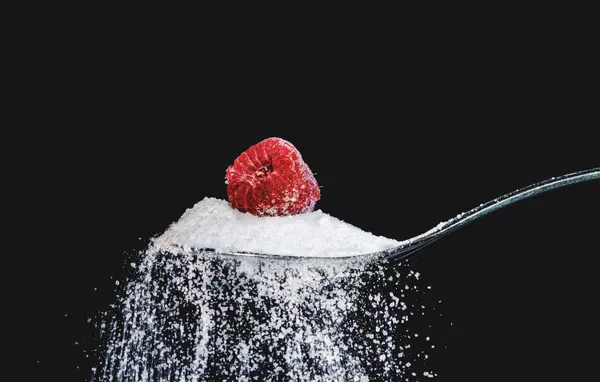

This can lead to various health risks. Practicing moderation and mindful eating habits is crucial for maintaining overall health and well-being.
Avoiding sugar is possible
According to the U.S. Dietary Guidelines, a staggering 75 percent of Americans consume more sugar than recommended. Unsure if you're among them?


Track your food intake with a food-tracking app to gauge your sugar consumption. To cut back, opt for smaller portions of sweet treats and be mindful of added sugars.
Sugar is not addictive
Likening sugar addiction to other addictions is overly simplistic. While sugar can stimulate pleasure and reward pathways in the brain, it's not truly addictive like illicit substances.
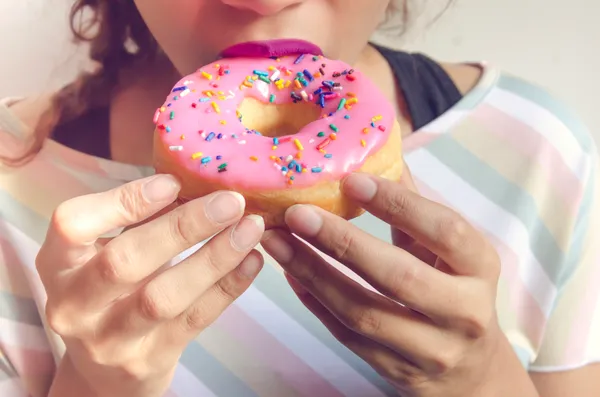

Sugar may feel addictive as eating sugary snacks can lead to blood sugar spikes and crashes, prompting cravings for more sugar to stabilize energy levels.
Cutting out sugar will not help you lose weight
Limiting sugar intake can aid with weight loss, but overall calorie intake is more important. Swapping sugary foods for high-calorie alternatives can actually halt weight loss efforts.


If you’re looking to lose weight, track the calorie content of your meals, focusing on balance rather than solely cutting sugar for weight loss success.
Sugar does not cause cancer
Sugar's role in cancer development and progression is complex. While cancer cells need energy, the belief that sugar directly causes or fuels cancer is largely unfounded.


However, high sugar intake may lead to weight gain, increasing the risk of obesity-related cancers. Research suggests sugar's impact on insulin and hormones may play a role, but more studies are needed.
Brown sugar is not healthier than white sugar
Despite the belief that brown or raw sugar is healthier than white sugar, the body actually metabolizes all sugar similarly.
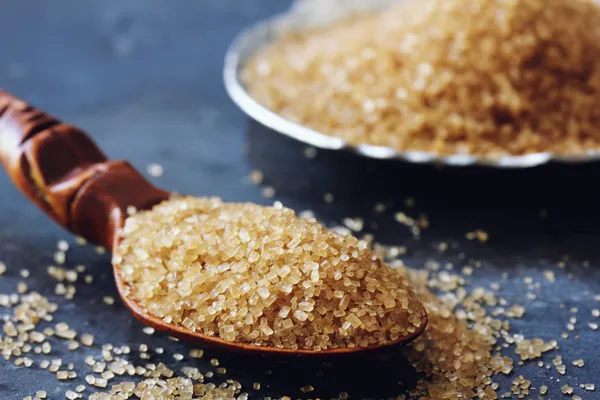

Darker sugars contain more molasses, but the nutritional variance between these sugars is minor, as the trace amounts of nutrients in molasses provide minimal nutritional value.
Sugar does not cause cavities
Contrary to popular belief, cavities are primarily caused by acidic foods and drinks that erode tooth enamel, and not eating too many sweets and chocolate.


While sugar consumption can contribute to cavity formation, it's the acid produced by bacteria in the mouth that poses the greatest risk. Carbohydrates actually cause more cavities than sugar.
Solid and liquid sugars are not equal
Beverages containing added sugar pose greater health risks than solid foods due to their "invisible calories." Liquid calories are less likely to be compensated for by eating less throughout the day.


For instance, consuming 200 calories from a sugary beverage doesn't prompt the body to naturally reduce calorie intake elsewhere, leading to potential weight gain.
Brown sugar isn't necessarily better for baking
Brown sugar is a popular choice for baking, but it's not always better than white sugar. The decision depends on the recipe's requirements for flavor and texture.


Brown sugar lends a rich taste and denser texture, while white sugar offers a neutral flavor and lighter texture. Both sugars have their place in baking, depending on the desired outcome.
'No added sugar' does not mean no sugar
Food labeling can be deceiving when it comes to sugar content. Terms like "no added sugars" can be misleading, as these products typically still contain sugar.


Sugar hides under various names like dextrose, fructose, and more. Be vigilant and familiarize yourself with these synonyms to make informed choices and avoid falling for misleading labels.
You don't need to cut out fruit
Fruits contain carbohydrates, mainly in the form of the naturally occurring sugar, fructose. Compared to vegetables, fruits generally have more carbohydrates but offer essential nutrients like fiber, vitamins, and antioxidants.


The fiber in fruits also helps regulate blood sugar levels. While fruits do contain sugar, they provide valuable health benefits beyond just calories, making them a nutritious choice.
White sugar contains the same calories as brown sugar
It's a widespread misconception that brown sugar has fewer calories than white sugar, but in reality, both contain the same calorie content.


Brown sugar may seem healthier due to its molasses content, but it still offers the same caloric value as white sugar.
Sugar is not only in sweet food
The notion that sugar is only found in desserts is overly simplistic and easily debunked. Sugar is widely used across various food categories, including savory and spicy dishes.


For example, hot sauce frequently includes sugar. This addition isn't for sweetness but to enhance the flavor, as studies have shown that sugar can amplify taste buds, making foods taste spicier.
Sugar is not a good source of energy
Sugar does provide an initial energy boost, but it's short-lived, often leading to the notorious mid-afternoon "sugar crash." This crash prompts cravings for more sugar.


The Harvard School of Public Health advises obtaining sugar from whole grains like oatmeal. Unlike refined sugars, they are digested slowly, providing steady and consistent energy.
There is no such thing as a 'sugar high'
Contrary to popular belief, indulging in too much sugar doesn't necessarily result in a sugar high. Scientifically, blood sugar levels typically normalise shortly after consuming glucose.


Instead, the pleasure sensation experienced after eating sugar may be attributed to the release of dopamine and opioids in the brain, providing a feeling of pleasure.
Brown sugar is not unrefined
Brown sugar is often referred to as unrefined sugar, but in reality, it's a blend of white sugar and molasses.
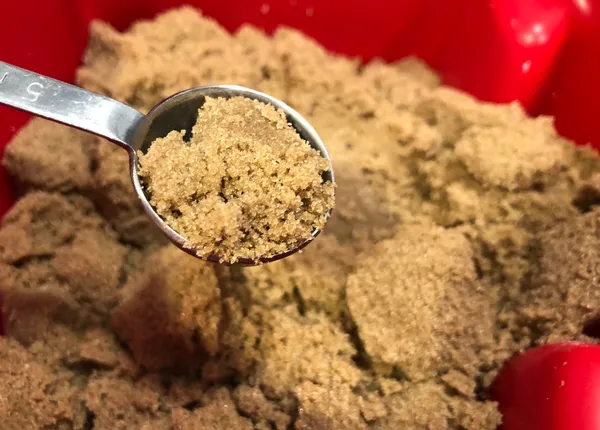

Although molasses is a natural ingredient, the production method of brown sugar involves processing, making it a refined product.
You don't need to brush your teeth immediately after eating sugar
It's generally true that brushing your teeth after consuming sugary foods or drinks is beneficial, but it's important to wait for about an hour after consumption.
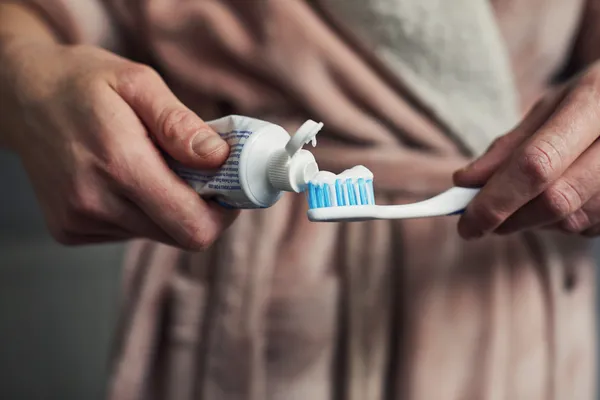

Items like citrus fruits and sugary drinks can weaken tooth enamel, so brushing immediately afterward can cause enamel erosion. Instead, wait for your mouth's pH levels to normalize.
Fruit juice is not just natural sugar
Fruit juice isn't just natural sugars; it actually contains as much sugar as Mountain Dew. Limit your juice intake to 8 ounces daily due to its association with increased cancer risk.


Opt for water instead or add citrus slices for flavor. If you crave juice, choose orange juice for its nutrients but stick to a small glass to avoid excessive sugar.
Snacking frequently doesn't help to curb sugar cravings
Frequent snacking doesn't ease sugar cravings but rather spikes insulin levels, leading to increased hunger. When insulin rises from carb and sugar consumption, it prevents fat burning.


To avoid this, limit refined carbs and sugars, opting for balanced meals to stabilize blood sugar and support weight loss goals.
Brown sugar is just as sweet as white sugar
Contrary to popular belief, brown sugar packs the same level of sweetness as its white counterpart. The difference lies in taste and color rather than sweetness.
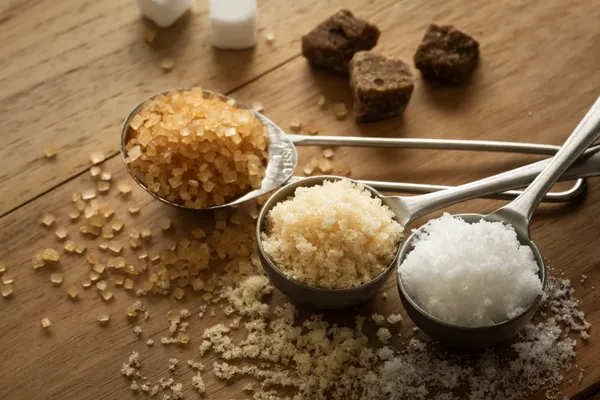

While white sugar is refined and stripped of molasses, brown sugar retains these flavorful components, imparting a richer taste and darker hue.
Sugar is not toxic
Sugar itself isn't toxic to the body; it's an essential nutrient that provides energy. However, excessive consumption of added sugars can contribute to health issues like obesity and diabetes.


It's advisable to prioritize whole grains and fiber-rich foods for stable blood sugar levels and additional health benefits from vitamins and minerals.
Coconut sugar is not any healthier to bake with
Despite the belief that coconut sugar is a healthier baking option due to its added vitamins and minerals, the quantities are so minimal that any health benefits are unlikely.


Choosing to bake with coconut sugar should be approached similarly to using white or brown sugar, as the minor nutritional differences don't significantly impact overall health.
Stevia is not natural
As stevia is derived from a plant, many believe it is natural. However, despite its reputation, commercial stevia products often undergo extensive processing.
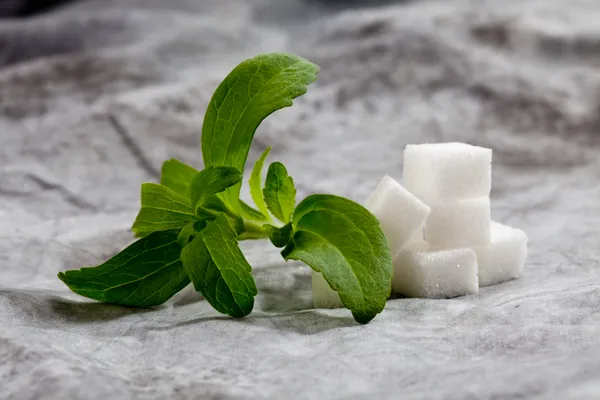

This processing strips away many of the plant's vitamins and minerals, rendering it no more natural than other refined sugars.
Honey is not healthier than sugar
Yes, honey does contain small amounts of vitamins, minerals, and antioxidants, which may offer some health benefits. However, it's crucial to recognize that honey is primarily composed of sugar.
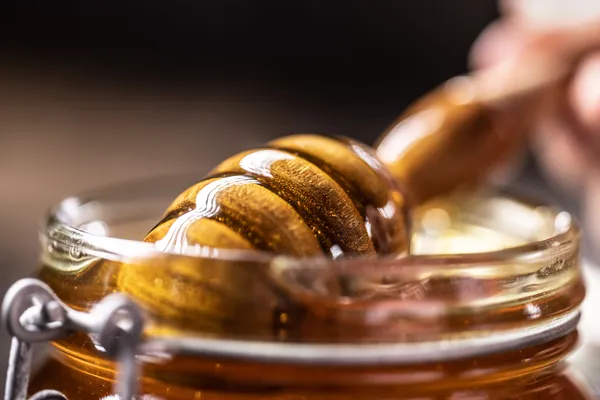

Just like white or brown sugar, honey is high in calories and can contribute to weight gain and other health issues when consumed excessively.
Sugar does not cause wrinkles
Sugar intake can contribute to skin aging, but genetics, sun exposure, and skincare habits play bigger roles. Genetics determine skin structure and resilience, while sun exposure accelerates aging by damaging collagen.


Adopting good skincare habits, like using sunscreen and moisturizing, is crucial for maintaining youthful skin. So while sugar matters, it's not the sole factor in skin aging.
Sugar contains nutrients
Sugar does provide a lot of empty calories, but some sources like natural sugars in fruits and dairy offer vital nutrients.
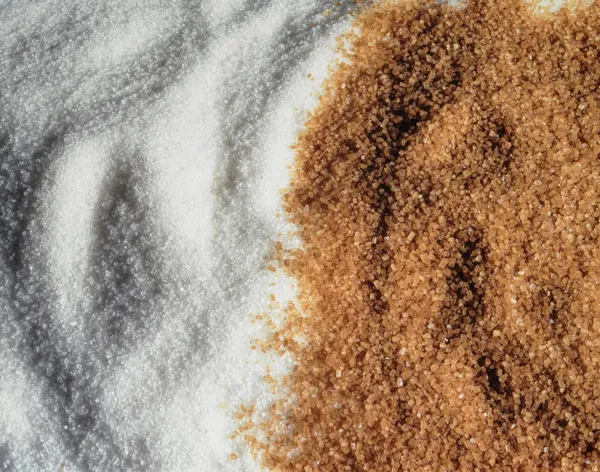

Fruits contain essential vitamins, minerals, and fiber, while dairy products provide calcium and protein. Choosing these natural sources of sugar over processed ones can contribute to a more balanced diet.
Sugar is not the only cause of obesity
Obesity isn't solely linked to sugar consumption. It's a multifaceted issue shaped by factors like diet, physical activity, genetics, and environment.


Excess sugar intake can contribute to weight gain, but addressing obesity requires a holistic approach considering various lifestyle and genetic factors, as well as environmental influences.
Sugar does not cause heart disease
Excessive sugar intake can exacerbate heart disease risk factors by leading to diabetes and obesity, but it's not the sole culprit.


Other factors like diet quality, physical activity levels, genetics, and overall lifestyle play more crucial roles in heart health.
Even natural sugars affect blood sugar levels
Despite being natural, sugars found in fruits, honey, and other sources can still elevate blood sugar levels, particularly when consumed excessively.


While these sugars come with additional nutrients like fiber and vitamins, moderation is key to maintaining stable blood sugar levels and overall health.
Sugar alcohols can be dangerous
Sugar alcohols like xylitol are often used as sugar substitutes due to their lower calorie content but consuming them in excess may lead to digestive discomfort such as bloating and diarrhea.
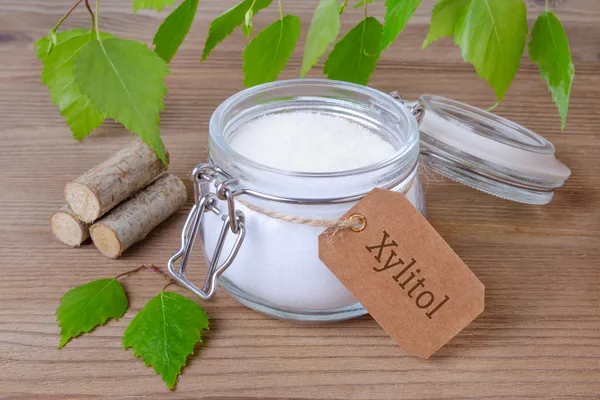

They offer a sweet taste with fewer calories, however moderation is crucial to avoid the potential digestive issues associated with their consumption.
Sugar does not cause insulin resistance
Excessive sugar consumption can contribute to insulin resistance, a condition where cells become less responsive to insulin. However, factors like obesity and lack of physical activity also significantly influence insulin resistance.


Managing sugar intake, along with maintaining a healthy weight and staying physically active, is essential for reducing the risk of insulin resistance and related health issues.
Sugar does not cause mood swings
Sugar consumption may temporarily affect mood due to its impact on blood sugar levels, but there is no conclusive evidence linking it directly to mood disorders like depression.


Factors such as genetics, life events, and neurochemical imbalances play more significant roles in the development of mood disorders.